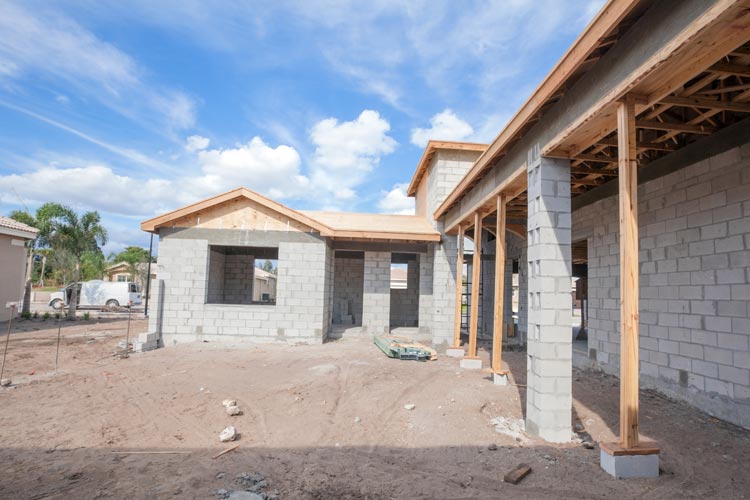
Florida is no stranger to tropical storms and experiences a hurricane season that runs from June 1 to November 30. Historically, tropical storms in the state have resulted in millions of dollars in property damage and even deaths.
Rebuilding after a storm takes mental and physical strength, but the process can be made easier when you have a good Florida independent insurance agent by your side and proper homeowners insurance. If your home goes through a tropical storm, follow these seven steps to start rebuilding your home and livelihood.
Step 1: Keep Yourself and Your Family Safe
Cumulatively, tropical storms in Florida have resulted in thousands of deaths to citizens. Hurricanes, cyclones, and related tropical storms can be deadly, so the most important thing is to prioritize the safety of yourself and your family.
Rebuilding from a tropical storm can be mentally and physically exhausting, so make time to keep a strong support system and open lines of communication among your immediate family to ensure that everyone is coping okay.
Top 5 Risks for Homeowners in Florida
- Wildfires and residential fires
- Hurricanes and tropical storms
- Severe storms and lightning damage
- Flooding and water damage
- Burglary and other property claims
Step 2: Call Your Independent Insurance Agent
If a tropical storm strikes, you will need to file an insurance claim as soon as possible. The first step in doing that is to call your Florida independent insurance agent. Agents have experience in dealing with disasters and assisting customers in filing a claim.
Your agent will contact your insurance company to get the process started. They will also understand the time frame for everything to be done so you won't miss your window to file a claim.
Step #3: Reenter Your Home If It's Safe to Do So
Just because the storm has passed doesn't mean that it's safe to reenter and explore your home. If you're able to enter your home, take these steps to secure your safety before walking around.
- Turn the power off at your main breaker.
- Don't leave lit candles unattended.
- Have a fire extinguisher handy at all times.
- Have a battery-operated carbon monoxide detector with you.
- Don't enter any damaged buildings until authorities say it is safe to do so.
- Avoid power lines.
Many tropical storms displace families from their homes. Local authorities will typically provide a time frame for when they believe it will be safe to reenter. Never reenter your home before being told it is safe to do so.
Step #4: Document Any Damage
When your agent reaches out to your insurance company to file the claim, the company will assign an adjuster to come out and examine the damage.
It's important to document as much of the damage as possible before the adjuster arrives at your home. Using photos and videos when necessary, document any damage to the home, landscaping, and your possessions.
7 Tips for Documenting Storm Damage
- Document the damage as soon as possible.
- Use natural lighting.
- Get as many angles as possible.
- Keep a log of damage as you find it, including date, time, and detailed descriptions.
- Do not remove or throw away any items.
- Assign a value to any damaged items.
- Include any original receipts if you have them.
Step #5: Understand Your Florida Homeowners Insurance Coverage
If your home is damaged in a tropical storm, the last thing you want to do is be surprised by what your Florida homeowners insurance will and won't cover.
Typically, homeowners insurance will cover damage from a tropical storm in the following ways.
- Dwelling coverage: Pays to rebuild or repair any structural damage to your home, including detached structures.
- Personal property coverage: Pays for any damage to personal belongings that are damaged.
- Windstorm coverage: Florida law requires hurricane windstorm coverage to be included in homeowners property insurance.
It's important to understand that your homeowners insurance will not cover any damage from flooding that results from a tropical storm. Your agent can help you purchase a separate flood insurance policy, which is something most Florida homeowners should consider.
Step #6: Secure Temporary Housing
If you're displaced from your home, an important step in recovery is securing somewhere to live while the insurance claim is being handled and your current home is being rebuilt.
Fortunately, your Florida homeowners insurance will cover temporary living costs if you have to leave your home. For insurance purposes, you'll need to keep track of the cost of any meals, living costs, hotel bills, and other associated spending. All of this information will be submitted to your insurance company as evidence of the claim.
Step #7: Wait to Hear from Your Independent Insurance Agent
Insurance claims can take a long time to be resolved, and you never know when your carrier will ask for evidence, proof of damage being claimed, and other information.
As the claim progresses with your insurance company, your agent will keep you updated on the progress. They may reach out to you many times to collect different types of information, so be prepared to work closely with them throughout the claim process.
If you have questions about your claim or rebuilding, your Florida independent insurance agent is the best person to contact. They're with you from beginning to end to help get you back on your feet and in your home as soon as possible.
Author | Sara East
Article Reviewed by | Jeffery Green
https://www.cdc.gov/disasters/hurricanes/be-safe-after.html
https://davidlowpa.com/how-to-properly-document-damage-for-a-homeowners-insurance-claim/
Home claim stats: GEO data
© 2024, Consumer Agent Portal, LLC. All rights reserved.